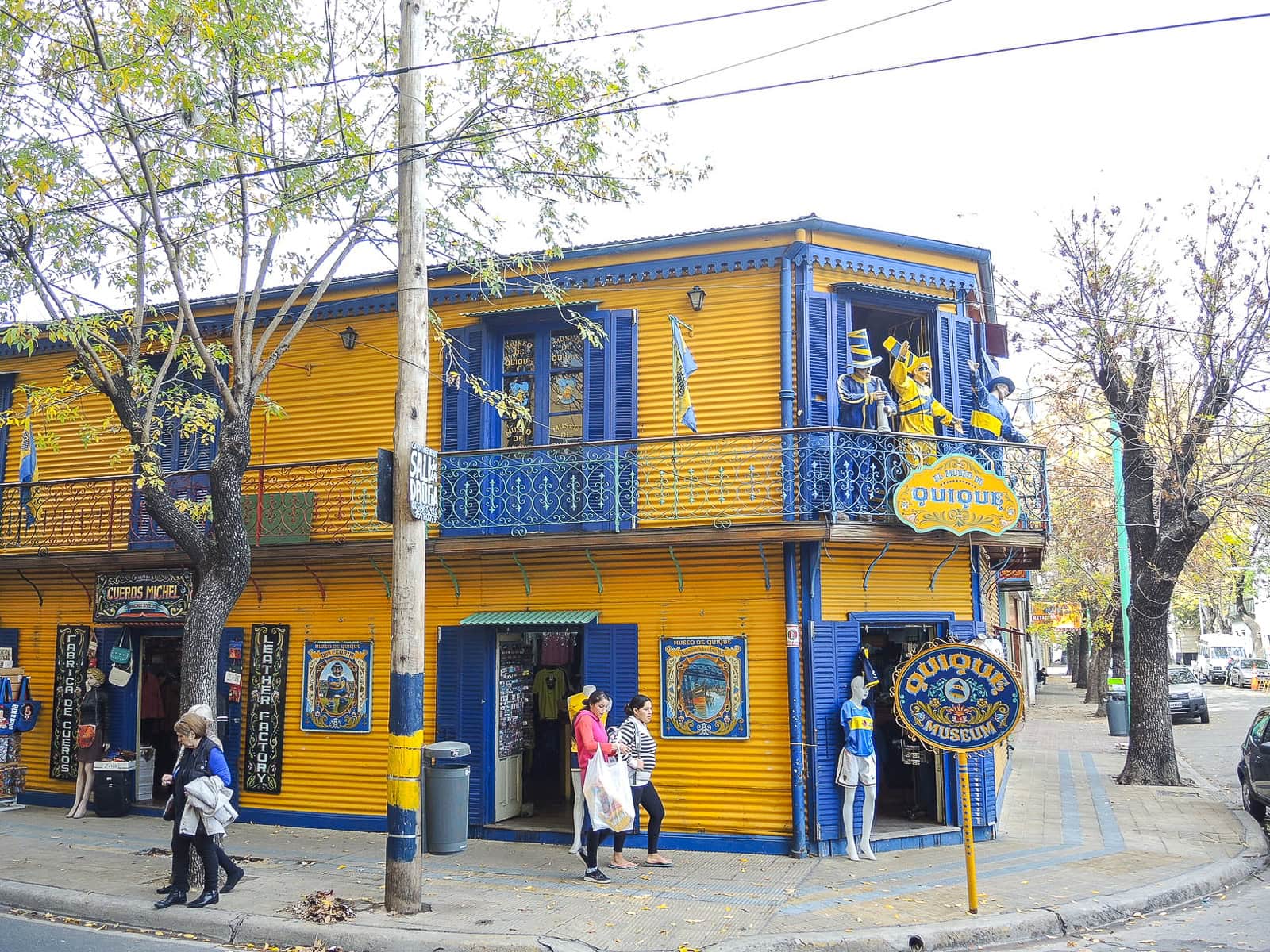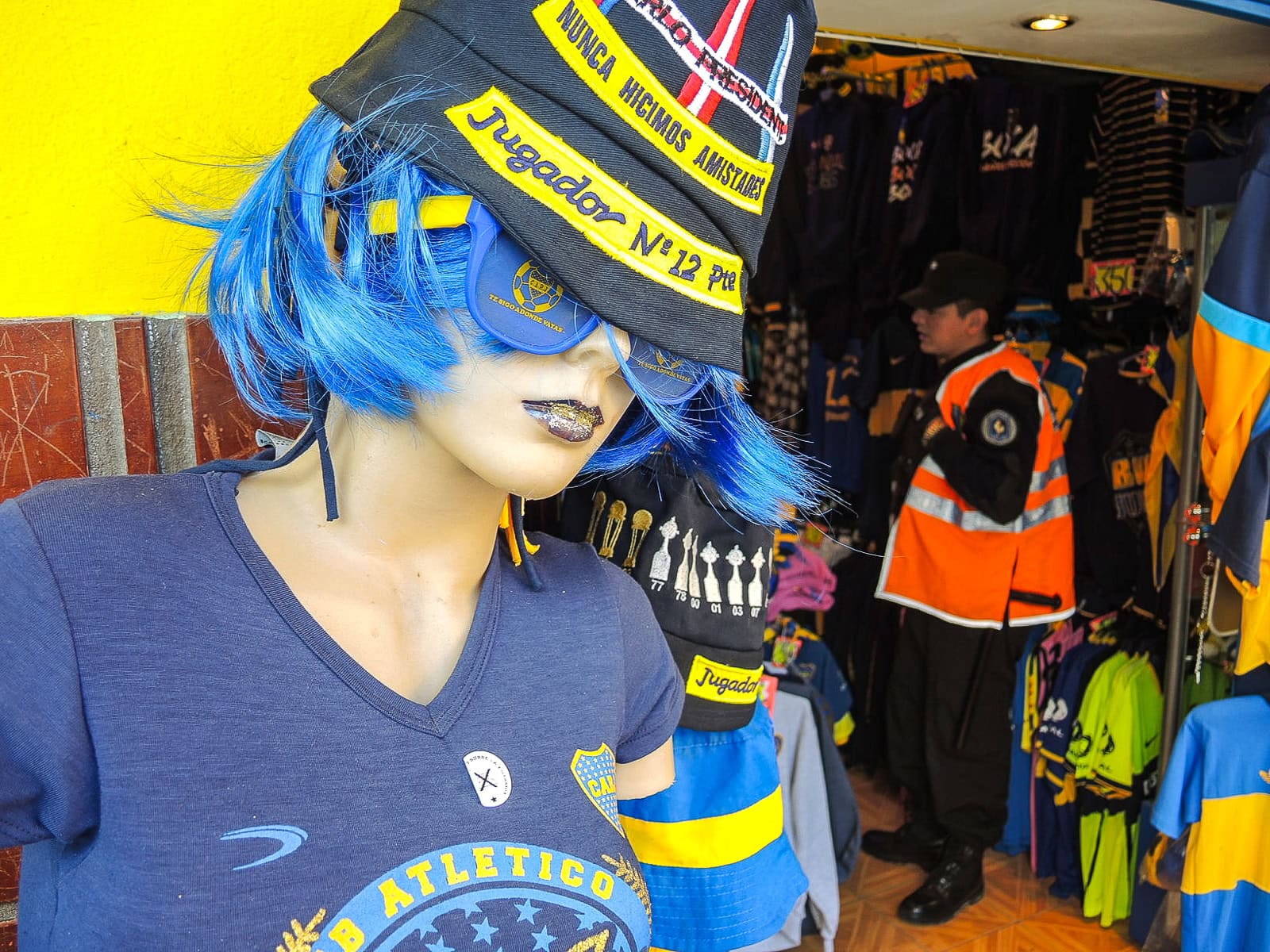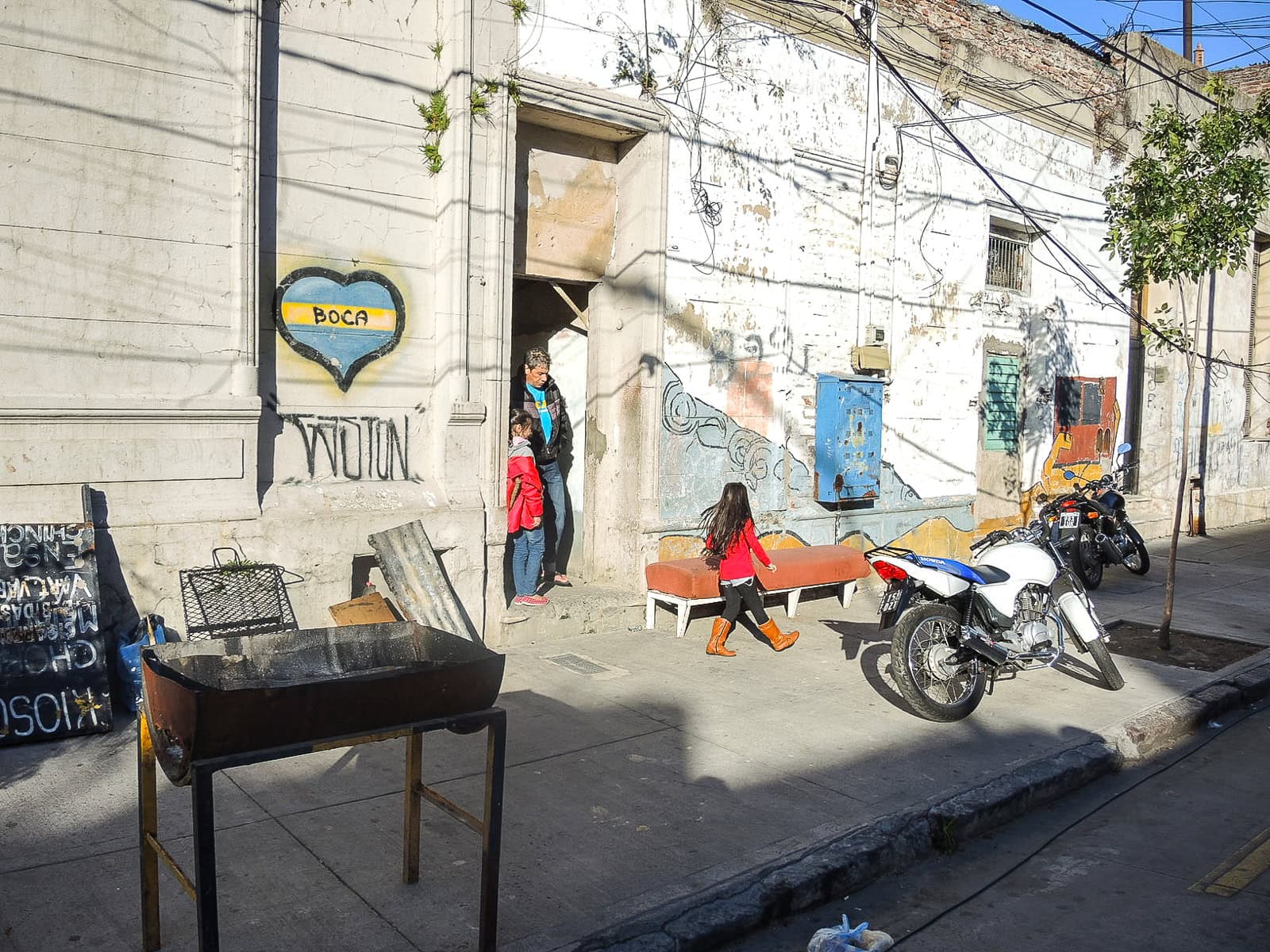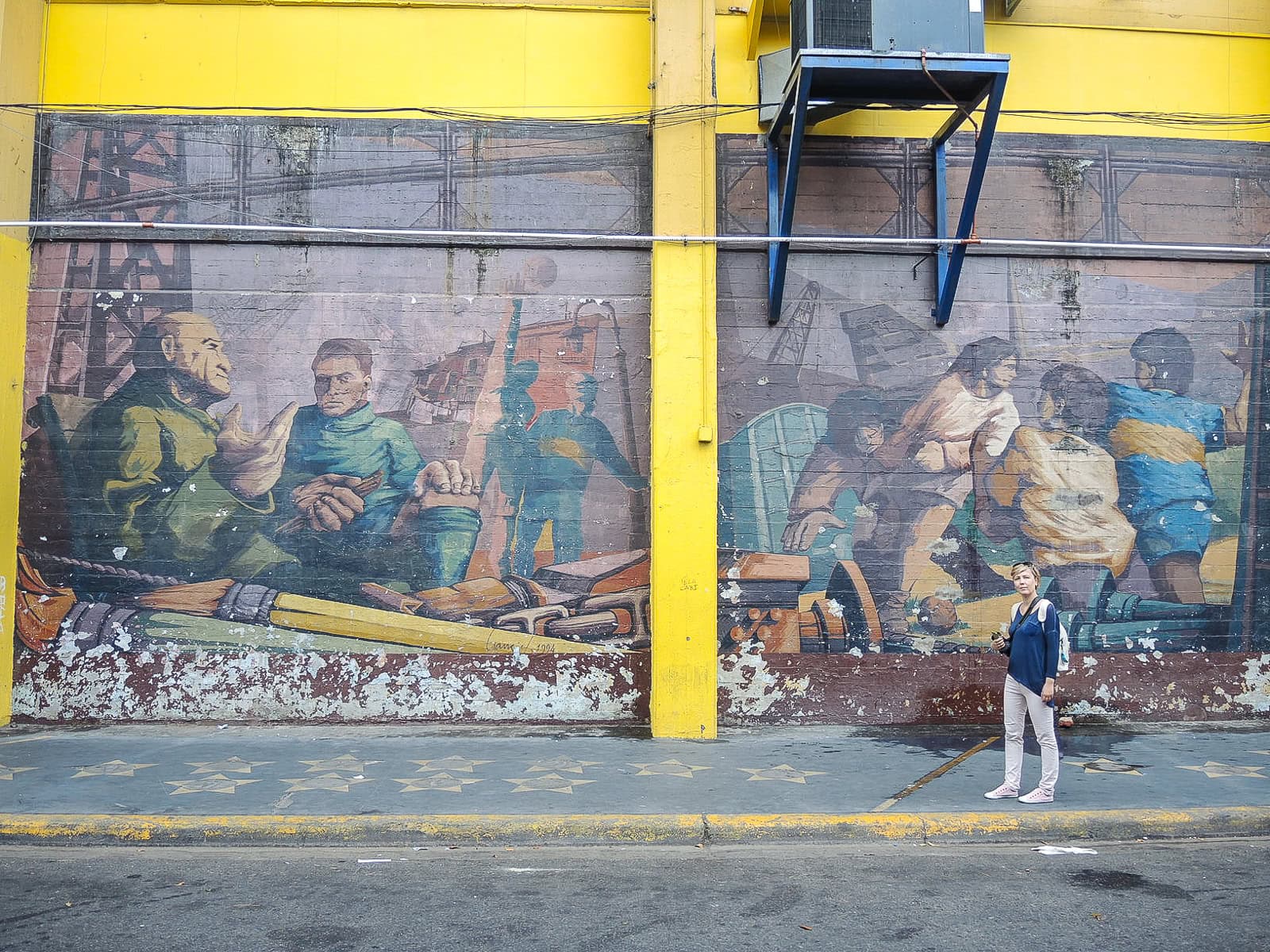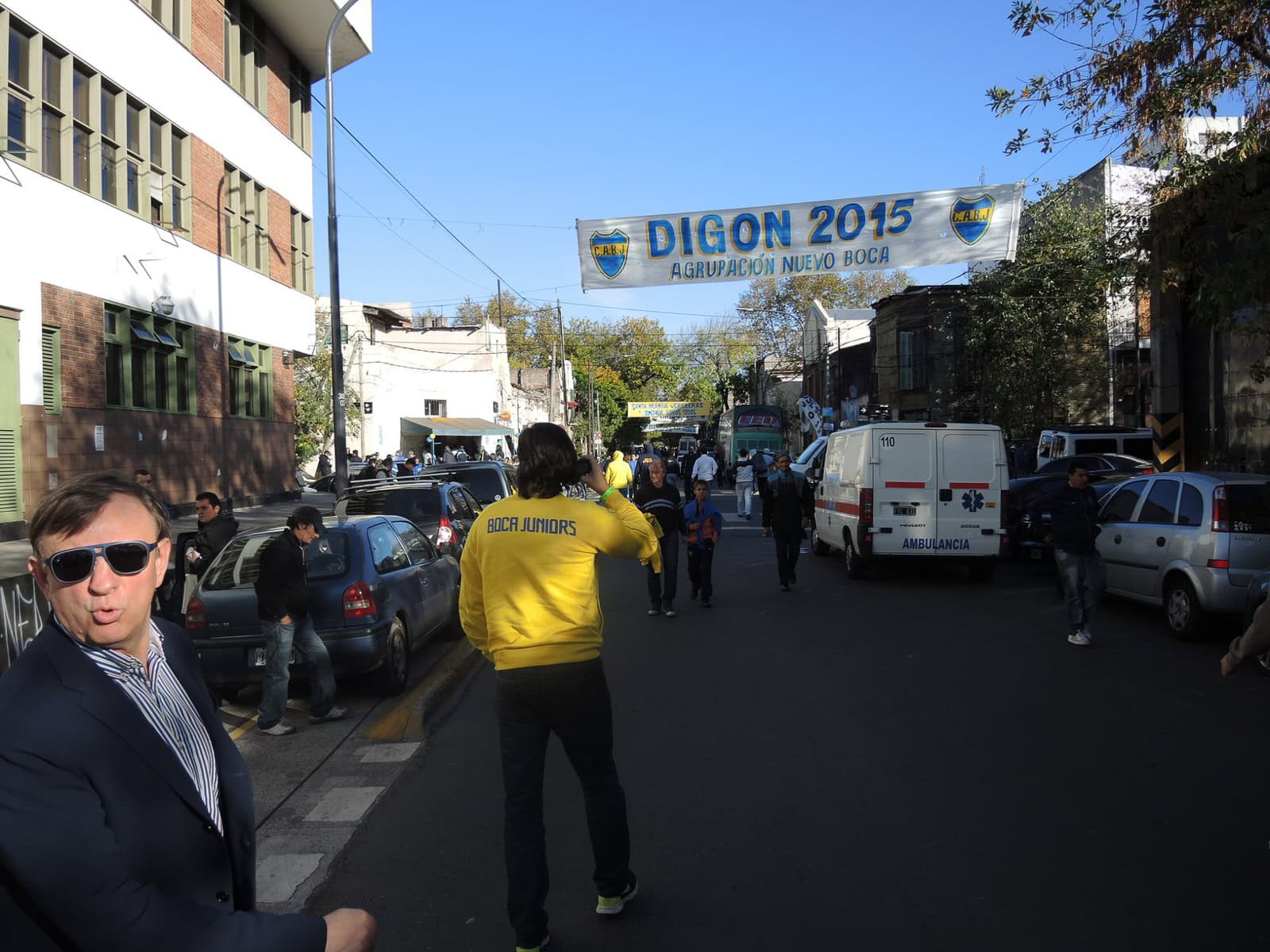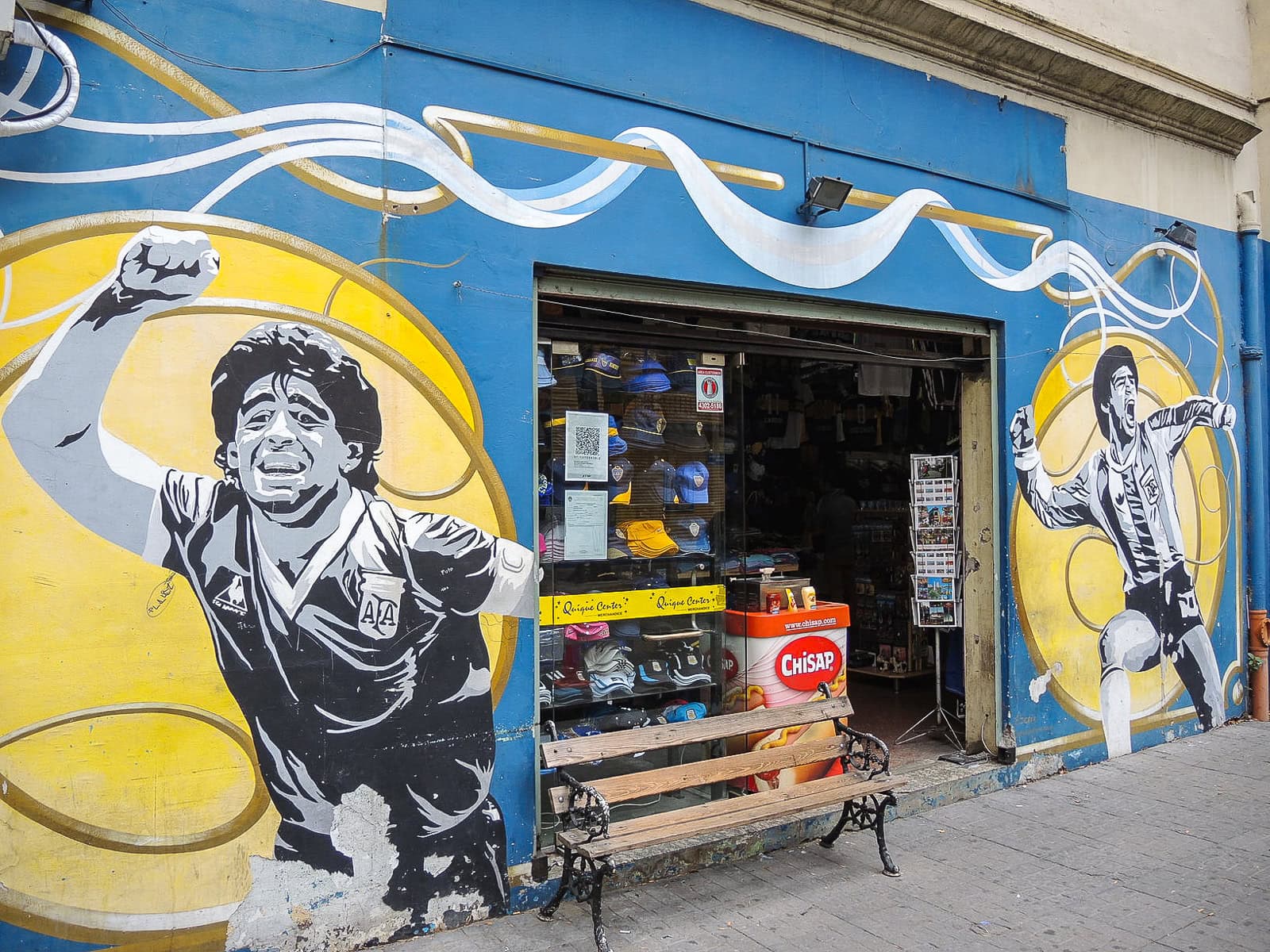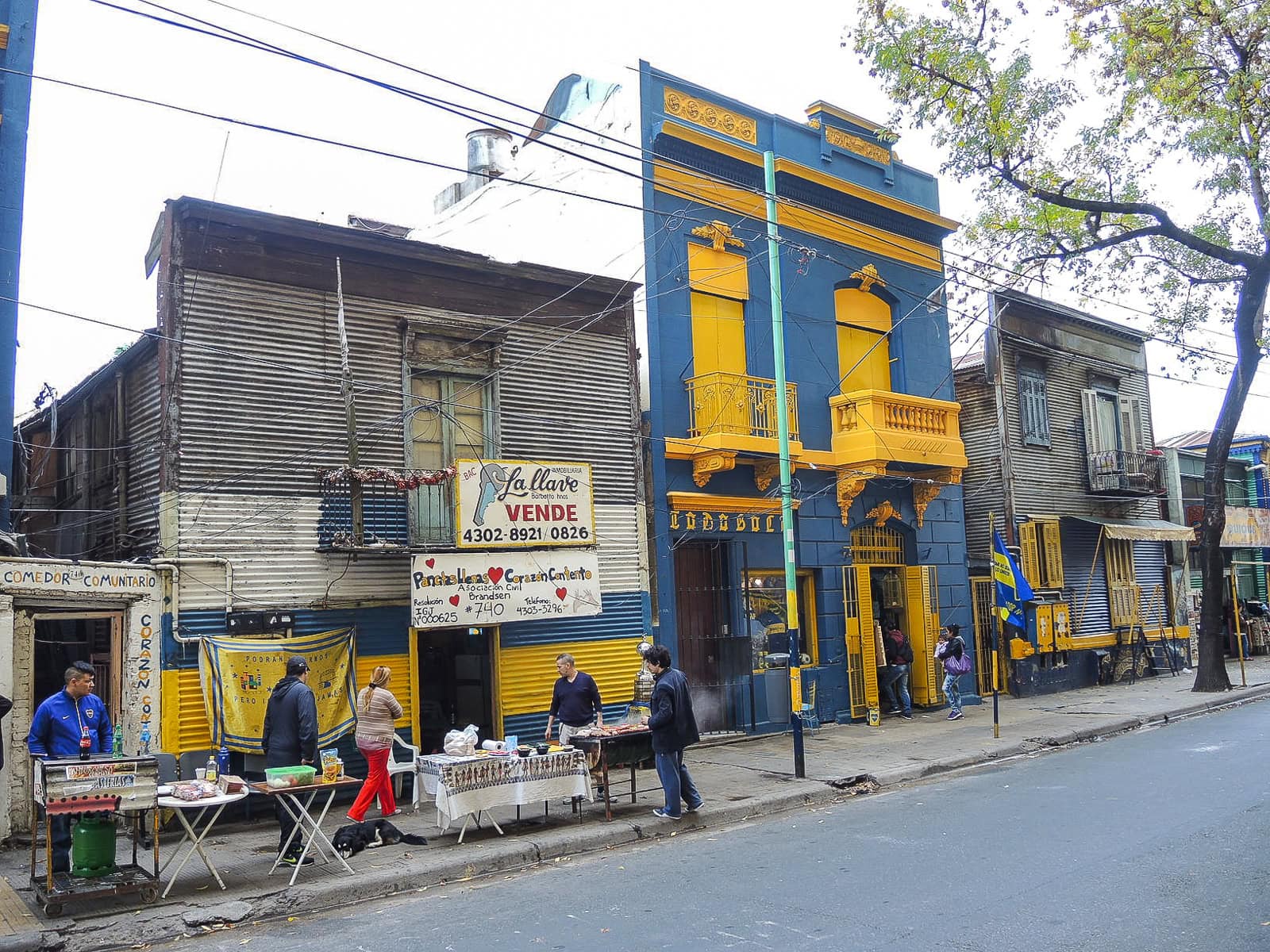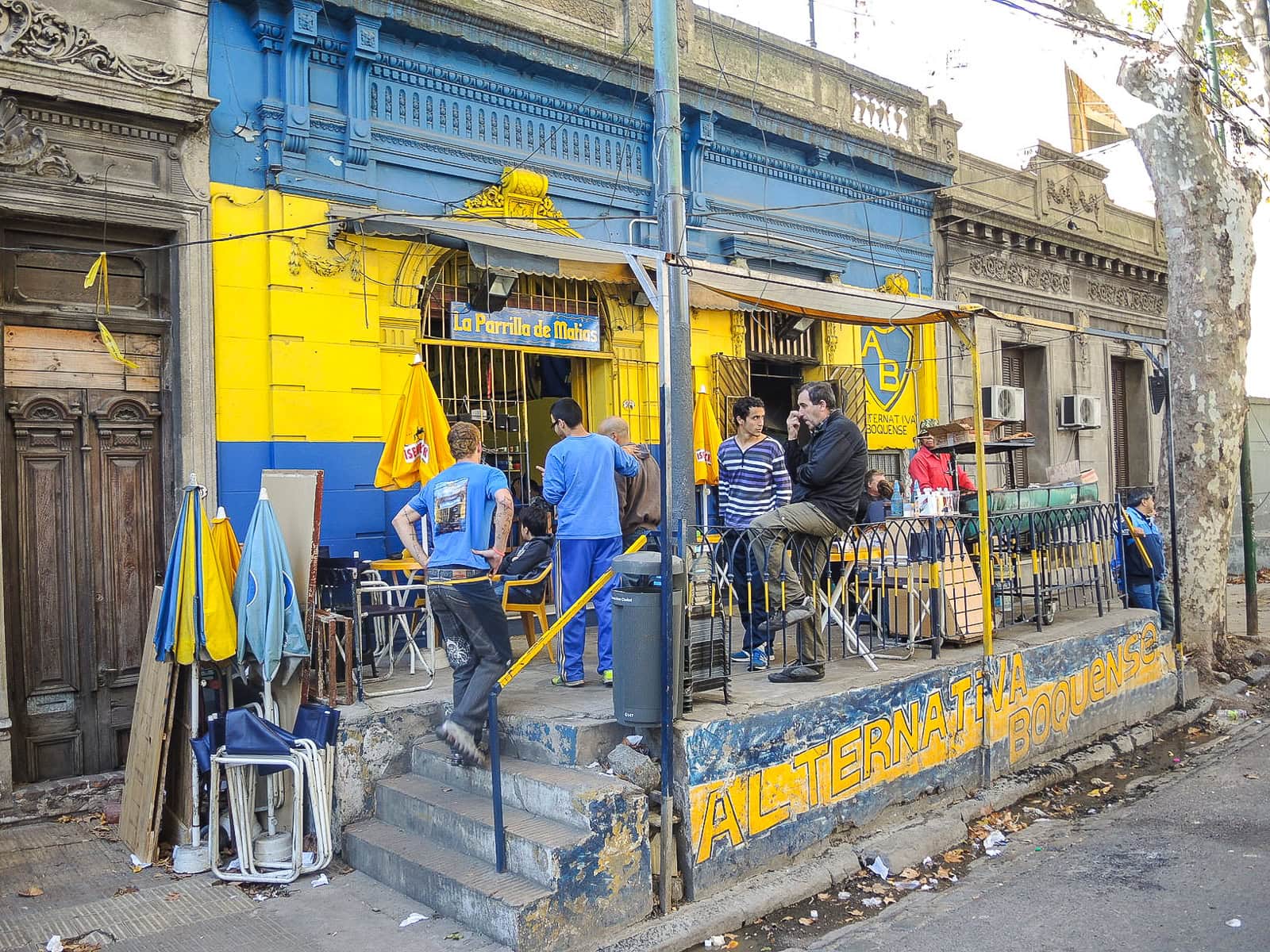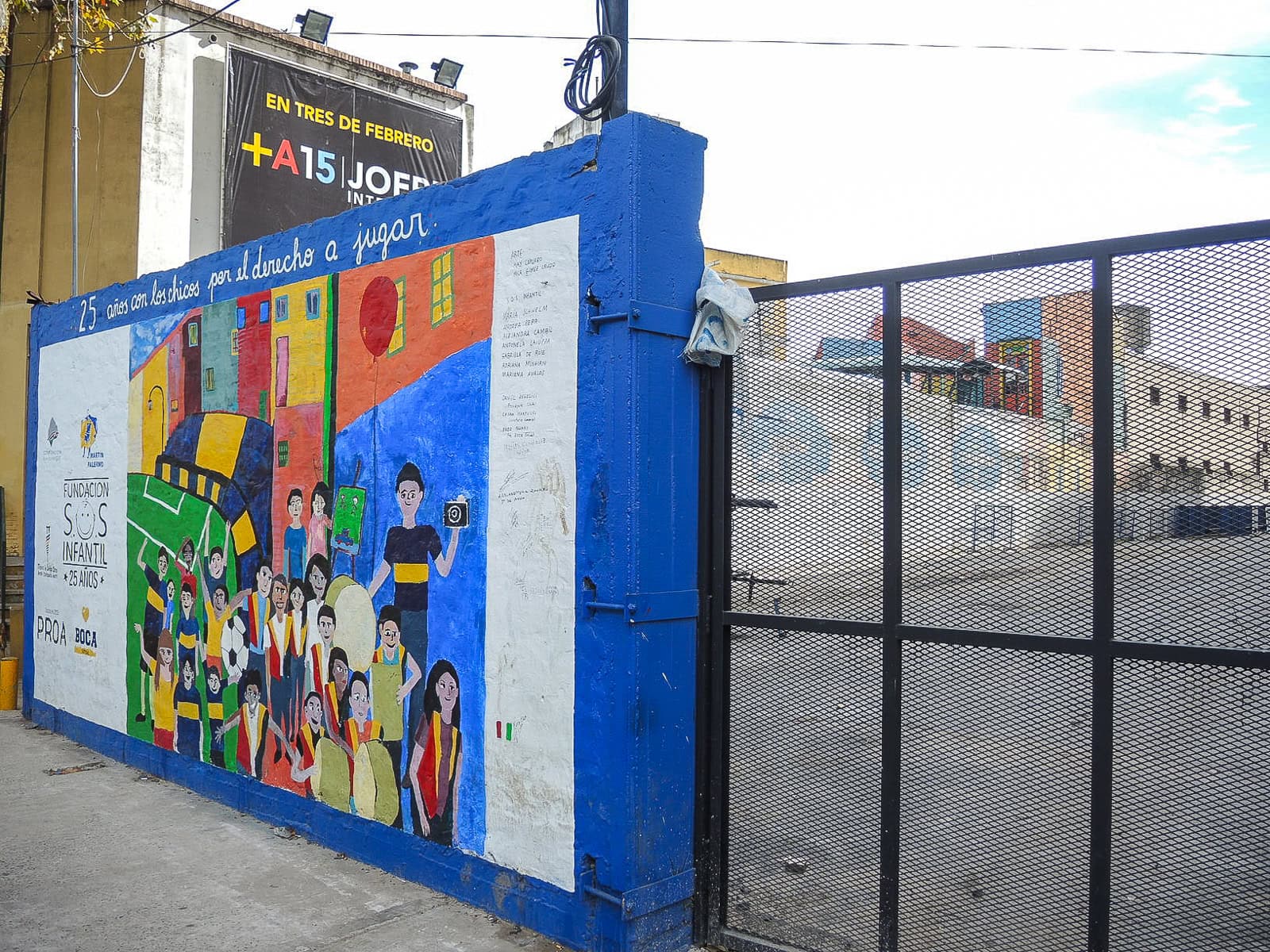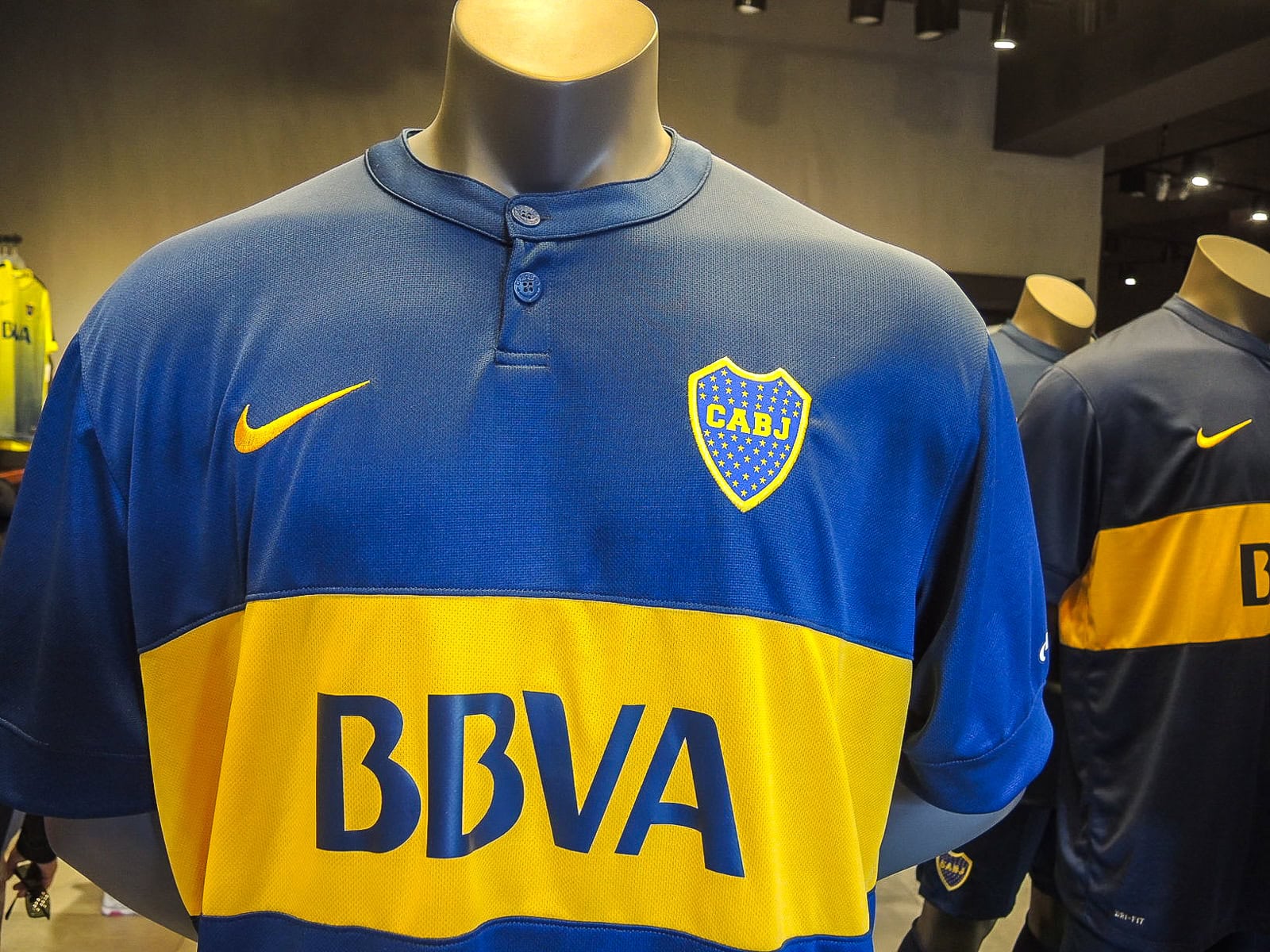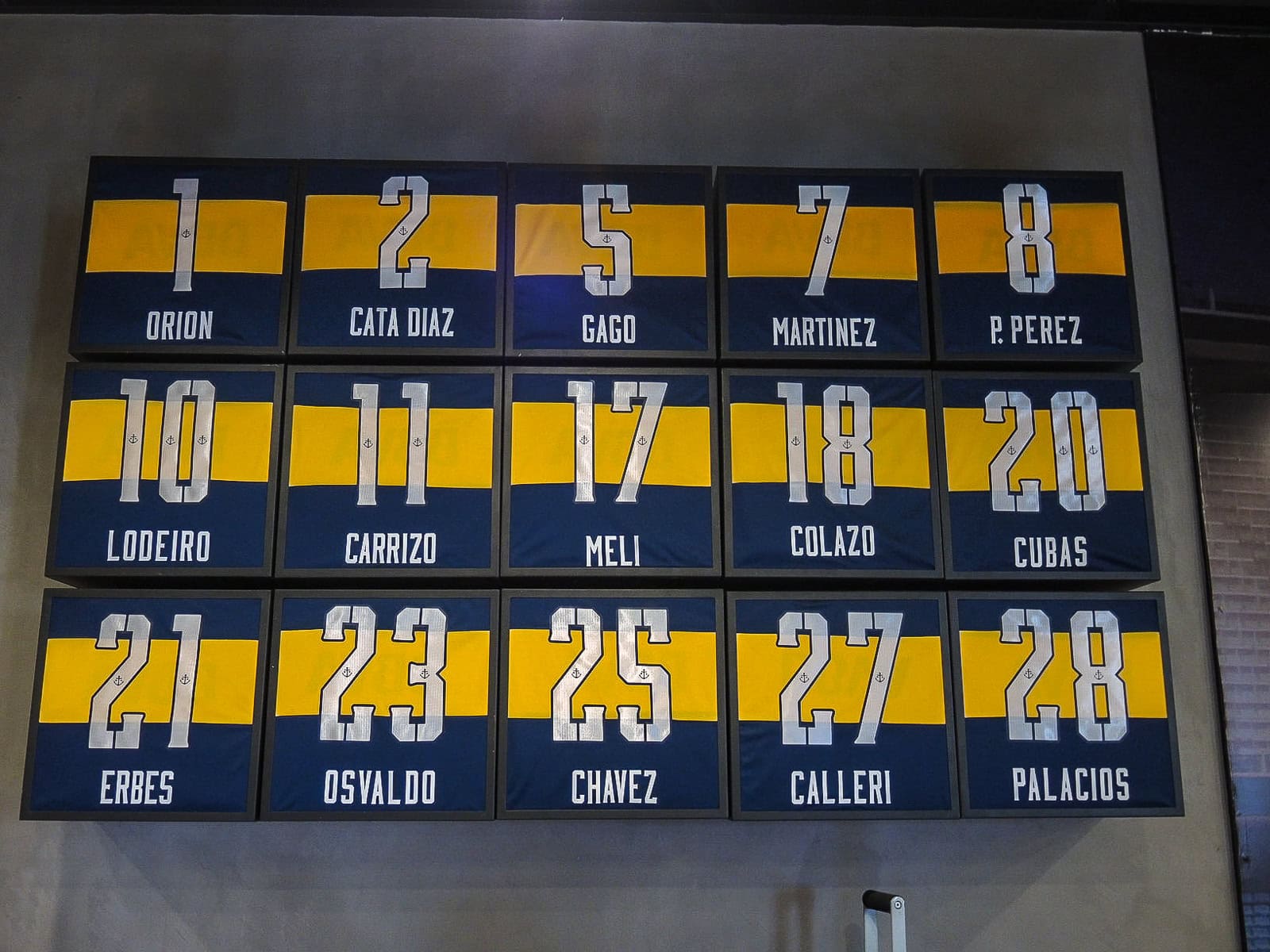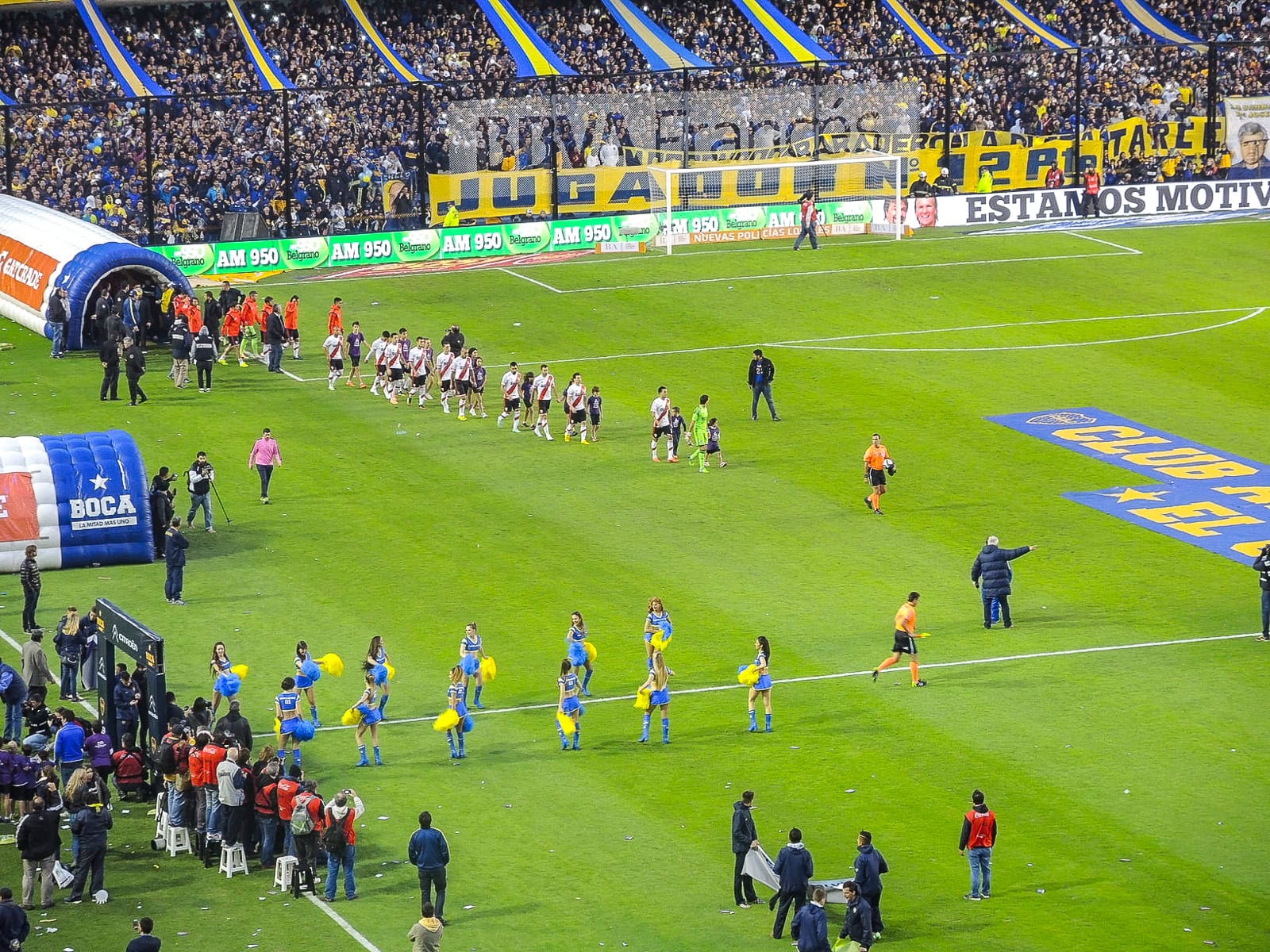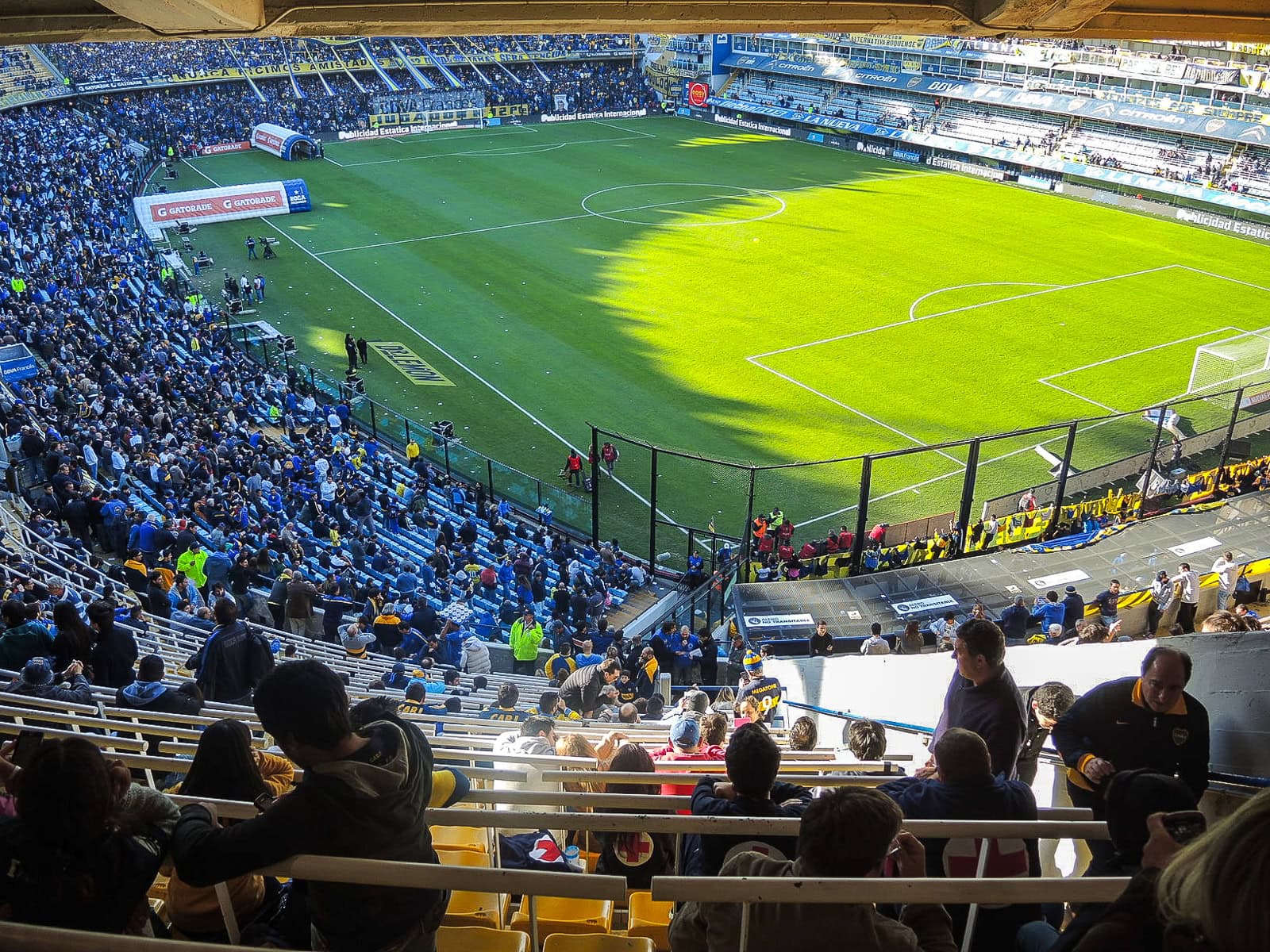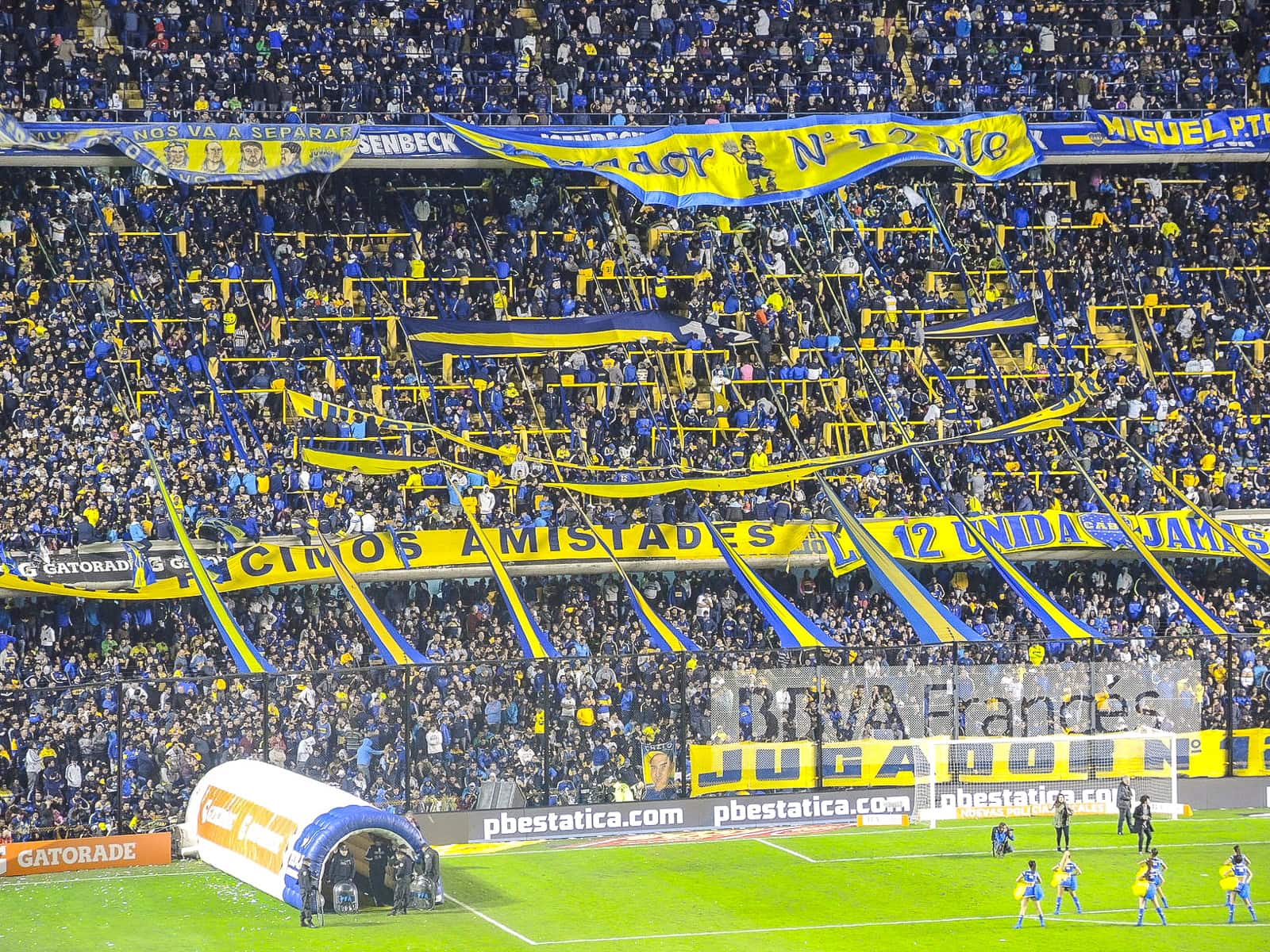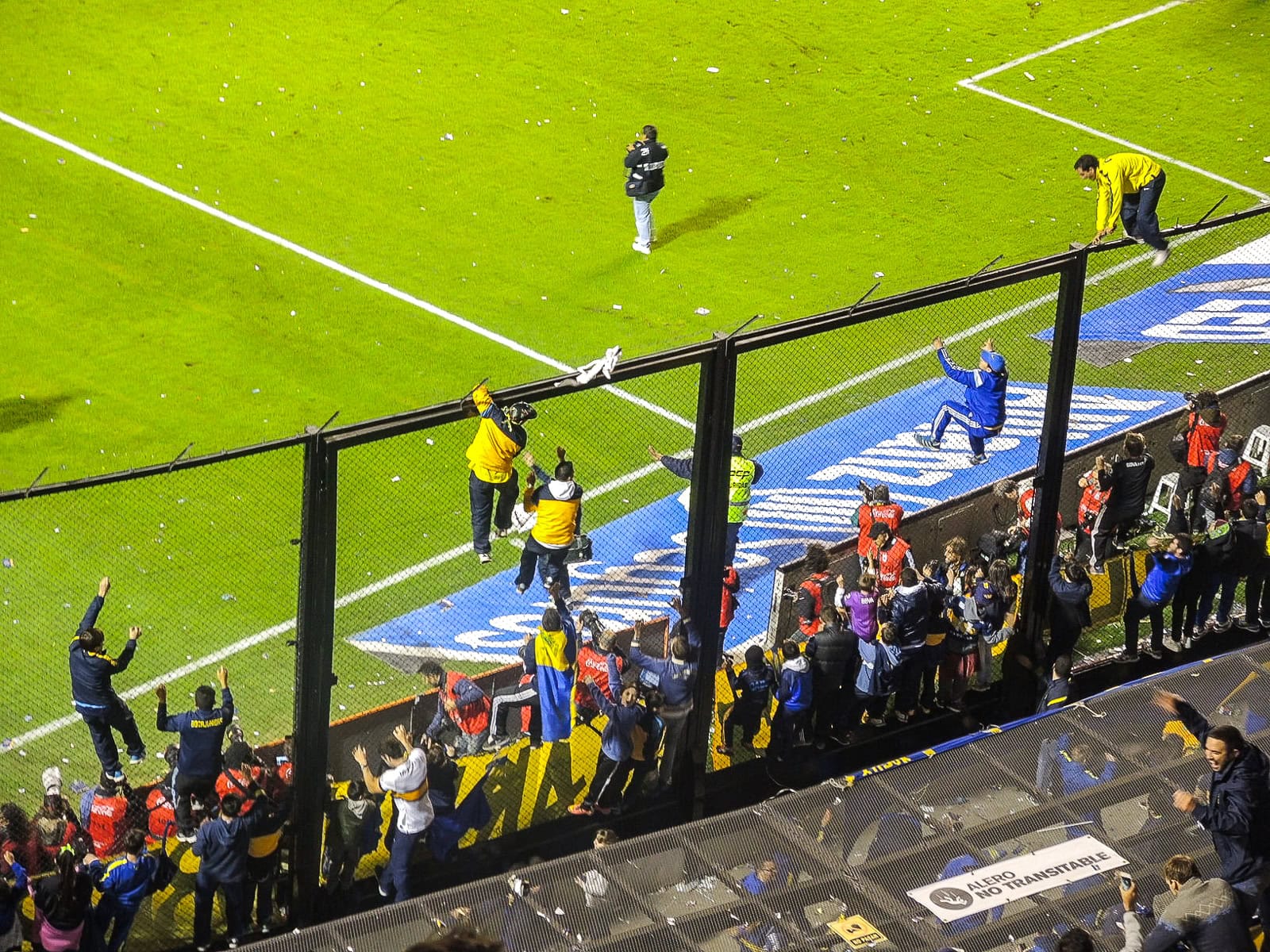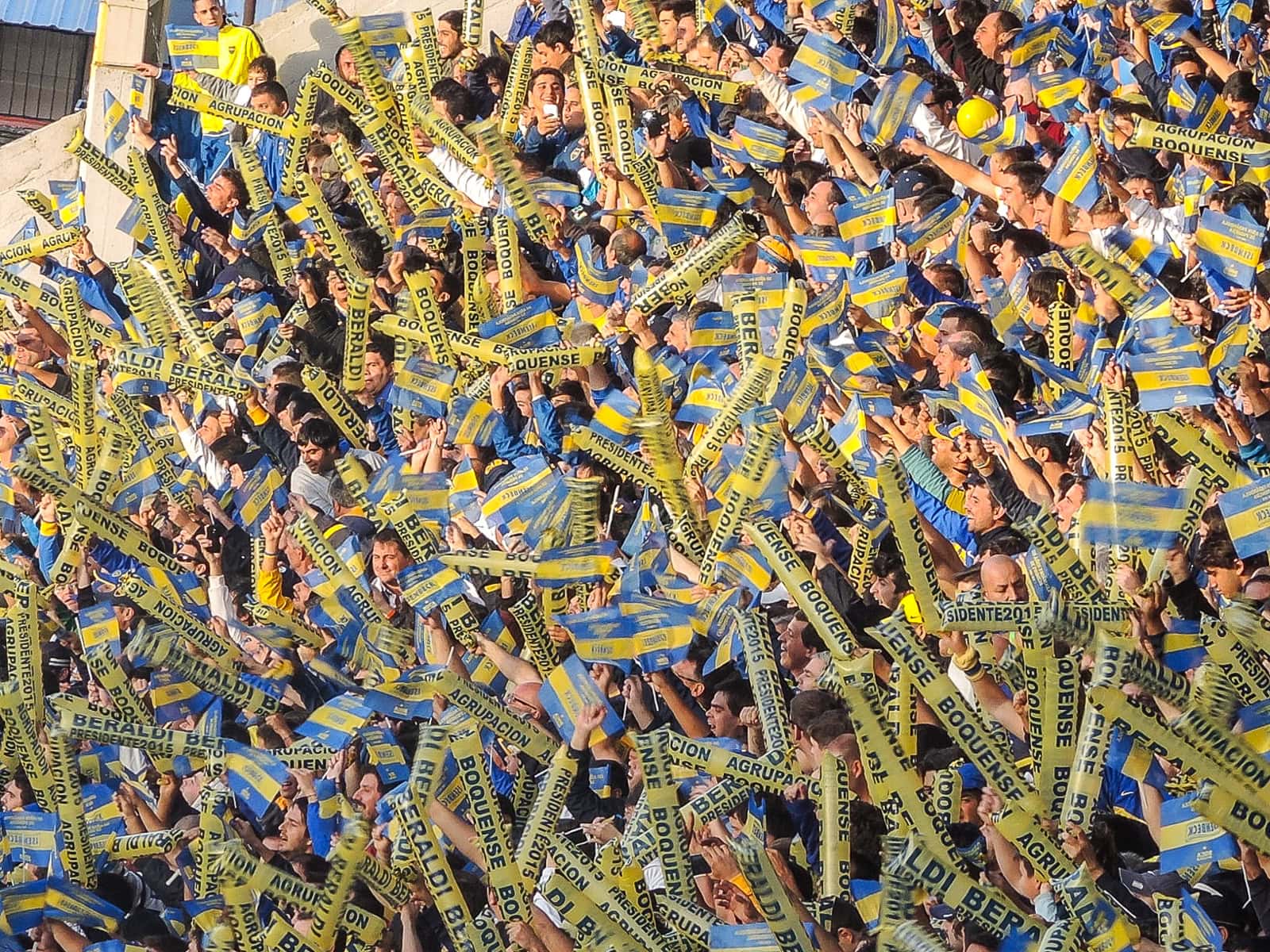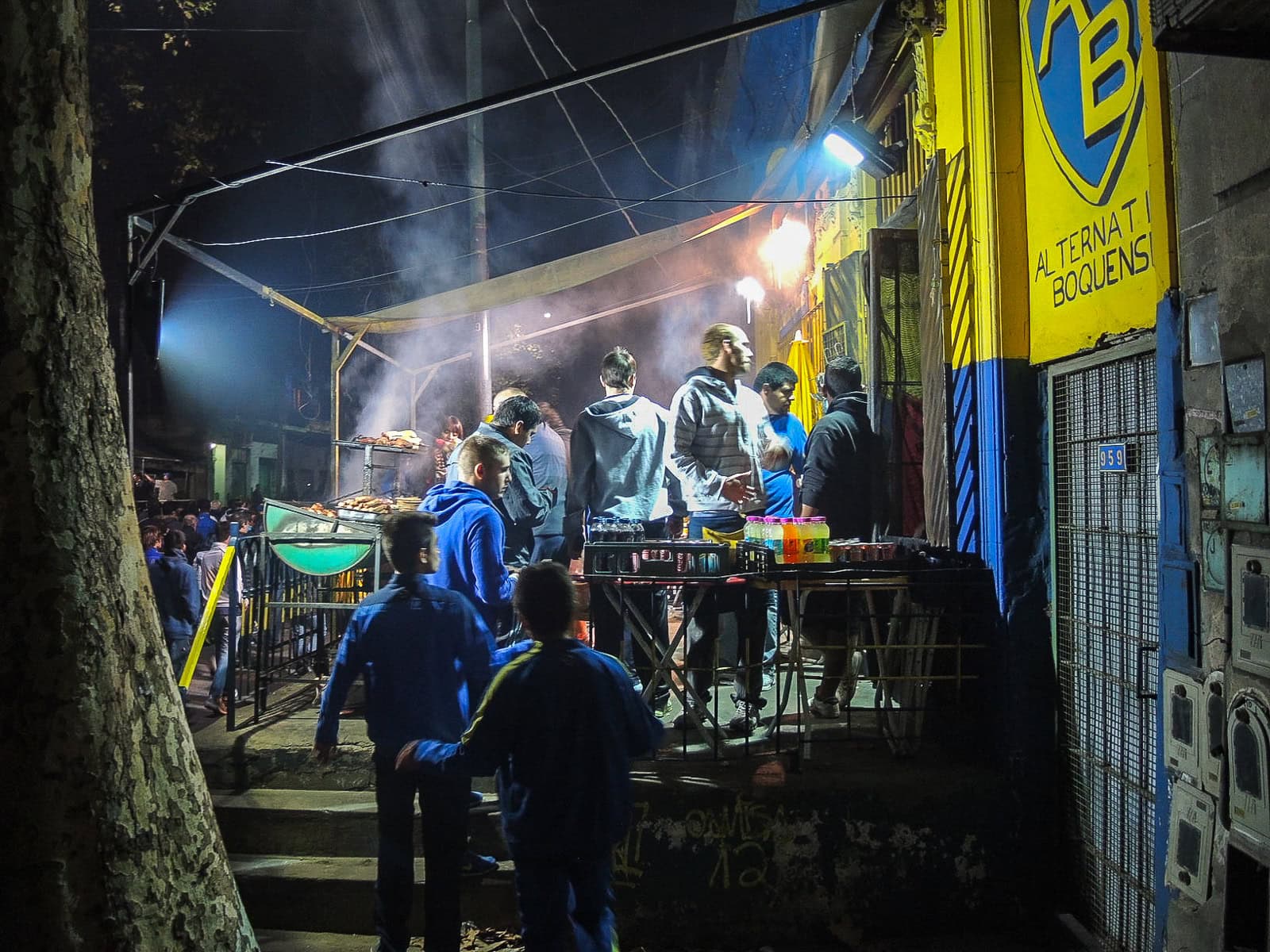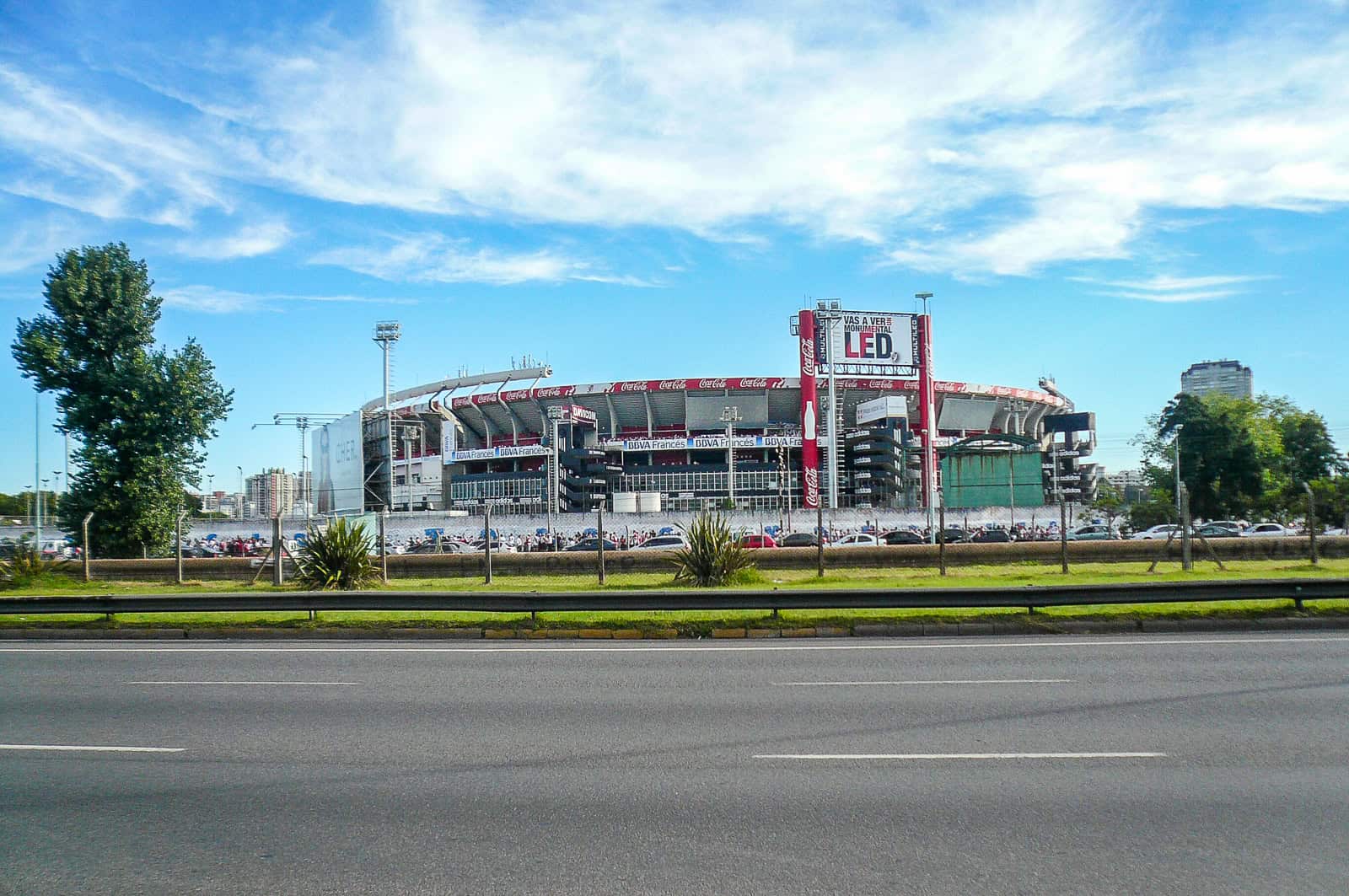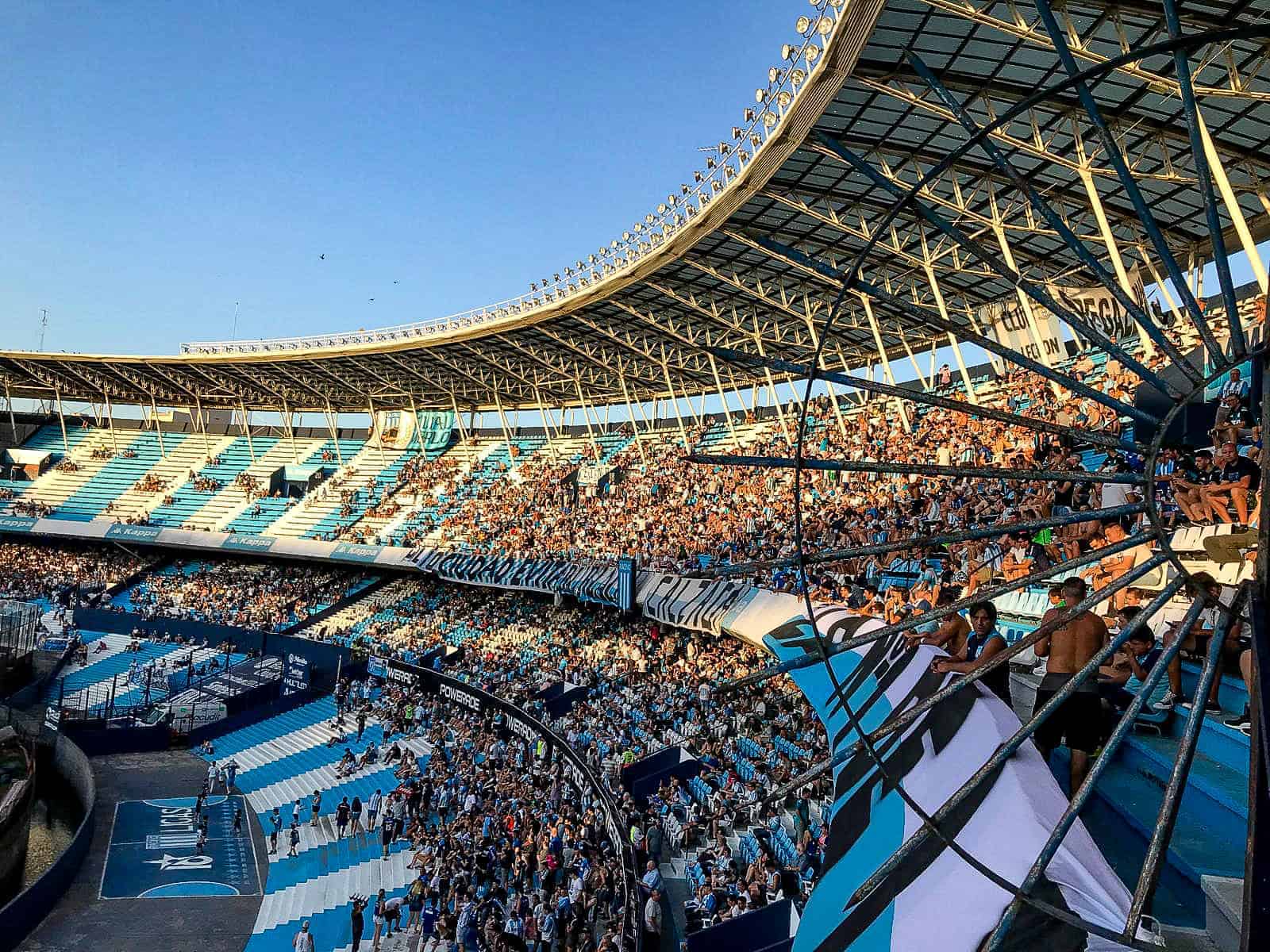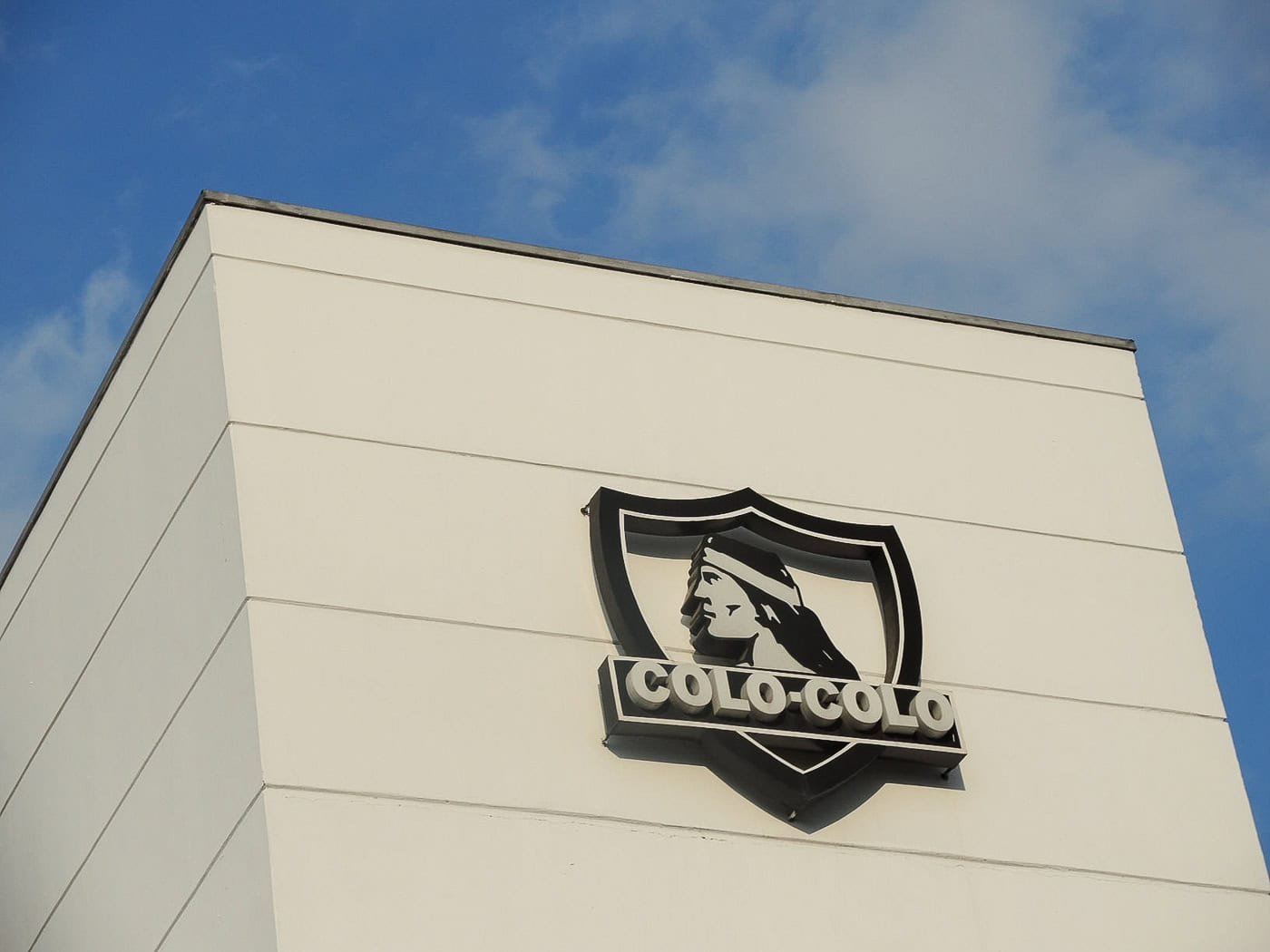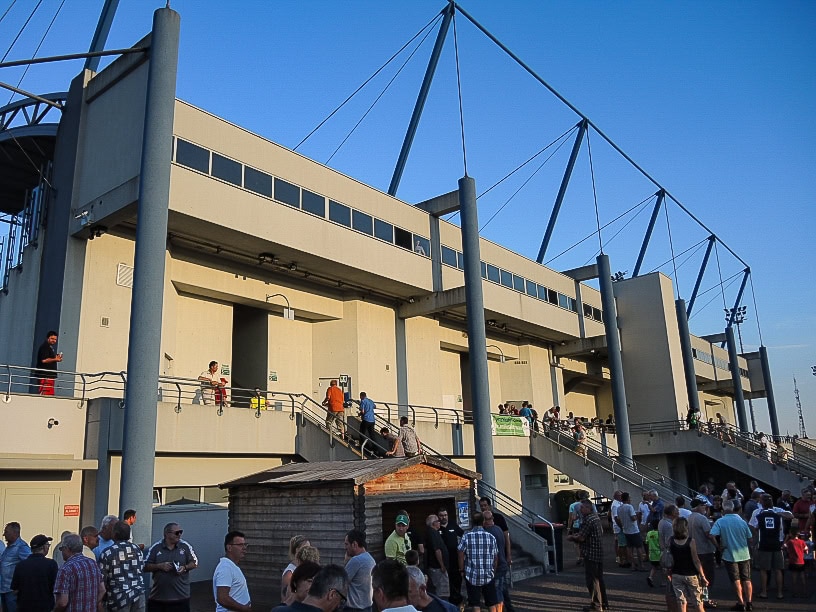
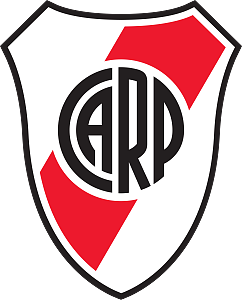
2 : 0
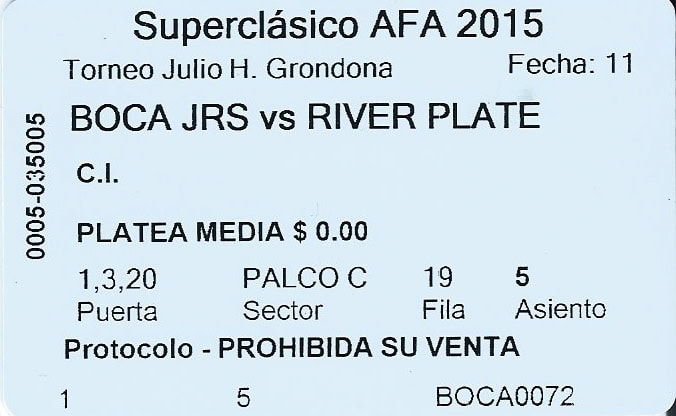
Getting tickets for such a match is almost a miracle, but if you know the miracle worker, anything is possible. Many a man call the clash between both teams “the best derby in the world”, well, there will probably be just as large a group of fans who would give the same label to the likes of derby of Rome (ticked off), Turin (ticked off), London, (ticked off), Athens (ticked off), Istanbul (ticked off), Berlin (ticked off), and even Sofia (ticked off), Moscow (ticked off), Rio de Janeiro (ticked off), Teheran (ticked off) or Łódź (ticked off).
It is enough to say that on the blue-and-yellow stadium affectionately called La Bombonera, River Plate fans are not allowed in on match day, of course for safety reasons. It is quite a reasonable idea considering a) the capacity of the venue (about 60 thousand), b) its age (year of construction: 1905), and c) the countless tons of emotions that accompany the event. More than an hour before the first whistle, the stadium was full. The fans were entertaining themselves and others by singing club songs, the melody of which could intrigue more than one music lover. The singing was interrupted by whistles when the visiting goalkeeper appeared on the field to warm up. Interestingly, the outfield players from both teams had to warm up elsewhere because they arrived on the field just before the match started. The whistle finally sounded, and the battle began. In the unanimous opinion of all my friends with whom I watched the match, setting down of a leg or giving up on a hopeless pass will never be forgiven by the fans. That is why the battle was fought literally for every inch of the pitch and for every ball. The visitors were the first to dominate the emotions, and they should have taken the lead – after one of the well-coordinated plays concluded with a powerful shot, the ball hit the crossbar, releasing a deep sigh of relief. At halftime, 0:0.
In the second half, the locals began to assert themselves more decisively, pushing River Plate back almost entirely into defense, with sporadic disorganized counterattacks. The next minutes brought no goals, and a concern began to arise about the lack of football salt. Fortunately, the Juniors’ coach, a certain Rodolfo Martin Arruabarrena (youngster, 39 years old), stepped into and used his coaching instinct: the goal scorers turned out to be both substitutes he introduced, who undoubtedly became (at least in some sense) immortalized. The guests were unable to respond to such a turn of events and had to swallow the bitterness of defeat with the hope for a quick rematch, which incidentally was supposed to take place just a few days later in the national cup match at the River Plate stadium.
Meanwhile, the celebration of victory began, and the excited crowd headed into the city to enjoy the triumph over the eternal rival in nearby and distant bars, pubs, grills, and other establishments to enjoy a victory over an eternal rival and, at the same time, to rub a bit of life’s nose in it. We also went to a pub in the noble neighborhood of Buenos Aires called San Telmo to taste some fine Argentine wine and even finer beef.
